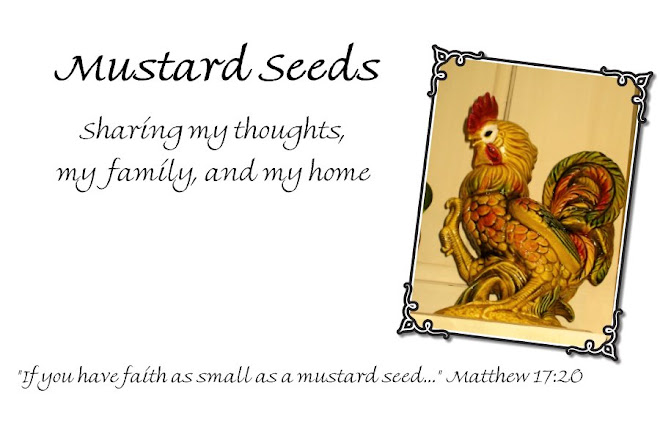http://www.eatcleandiet.com/tosca_reno.aspx
I highly recommend her latest book, Just The Rules

Another source of inspiration is a book by Dr. Oz...You On a Diet.

I have been reading and researching these books for the past year, and I have learned a lot about nutrition. (I wish I could go back to college to become a registered dietician, but I digress. )Here's the gist of the diet.
You try to eat food as close to the way it is provided for us in nature. Eat an apple or an orange instead of drinking the juice. Fruits and veggies are the healthy carbs our diets should include so we can get our full range of vitamins and minerals. I try to limit breads, but when I have a sandwich, it is on whole grain bread. I use whole grain pasta and brown or wild rice instead of white pasta and rice. Oatmeal, as I have mentioned in my post on breakfast foods, gives energy and protein and warms your tummy(sprinkle cinnamon on top, its delicious). No sugar...it really is poison to your body. Sugar causes insulin surges making it more difficult to lose fat. In fact, belly fat is directly related to sugar intake. I will post soon about sugar. I eat lots of salads, beans, chicken, salmon (I really like those little foil pouches of pink salmon by Chicken of the Sea). I have a steak once a week ,but I no longer put butter and sour cream on baked or sweet potatoes. Instead of craving sugar, I now crave sauteed spinach...must be just what my body is needing. I love Chobani Greek yogurt (one serving has 14 grams of protein). I use olive oil for sauteeing spinach, chicken, and dipping bread occasionally. Avocadoes are a good, healthy fat. Healthy fats are good for your heart and skin, and actually don't make you fat if eaten in moderation...just a drizzle, not a cup full. Almonds and walnuts are a great snack containing healthy fat and protein.
I have learned to read labels. Make sure food is real food. If you can't pronounce the ingredients, don't eat it. Try to choose foods with lower sugars and higher protein, and make sure to eat plenty of fiber rich foods...they keep you feeling full longer. In fact your body needs to be refueled about every 4 hours to function at it's best, so be prepared with healthy snacks when you leave the house, so you won't be tempted to run through fast food or buy a candy bar. The energy you get from the candy bar will fizzle out quickly, leaving you hungrier than ever.
Just remember, God designed our bodies to eat for our fuel. He created all the right foods necessary to our bodies. When men and women of the Bible ate, their foods were natural, whole foods, like nuts, grains, seeds, fish, fruit, vegetables, with an occasional find of some sweet honey from a honeycomb. They did not go through the fast food lane or into a convenience store. I believe our bodies are still meant to eat this way, and will funtion best when we are given the right foods in proper amounts.
All this said, I do have a treat every now and then, but it is more an exception than the rule. This keeps me sane, and I find that I really enjoy that treat more that I don't eat them everyday.
Think about these concepts, and keep it as clean as you can .



 While I am on the subject of blenders, let me plug my Ninja blender. This thing has some power! It has 3 sets of blades, and it gets the job done. It has been used and abused this past year, and it still works great. Bed, Bath, and Beyond has them for about $100.00, but they always accept expired coupons, so you can usually get additional $20.00 off. Not cheap...but so worth it if you need a good blender. Also note the neat milkshake straws I found there. They have a larger diameter , and make it much easier to drink a shake from.
While I am on the subject of blenders, let me plug my Ninja blender. This thing has some power! It has 3 sets of blades, and it gets the job done. It has been used and abused this past year, and it still works great. Bed, Bath, and Beyond has them for about $100.00, but they always accept expired coupons, so you can usually get additional $20.00 off. Not cheap...but so worth it if you need a good blender. Also note the neat milkshake straws I found there. They have a larger diameter , and make it much easier to drink a shake from. Breakfast #2: Oatmeal is so good for you...Dr. Oz says so...It will also keep you from getting hungry later in the morning. I like the steel cut oats because they are less processed than the kind that is steamed , rolled, and then cut. No time you say? It only take about 5 minutes to cook on the stove top. I add 1/2 cup of blueberries (frozen berries are fine...they will thaw right away when they get stirred into the oatmeal),some cinnamon, a splash of skim milk, and sometimes I add a teaspoon of maple syrup or honey. Slivered almonds on top are good, too.
Breakfast #2: Oatmeal is so good for you...Dr. Oz says so...It will also keep you from getting hungry later in the morning. I like the steel cut oats because they are less processed than the kind that is steamed , rolled, and then cut. No time you say? It only take about 5 minutes to cook on the stove top. I add 1/2 cup of blueberries (frozen berries are fine...they will thaw right away when they get stirred into the oatmeal),some cinnamon, a splash of skim milk, and sometimes I add a teaspoon of maple syrup or honey. Slivered almonds on top are good, too.




